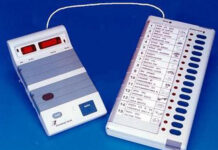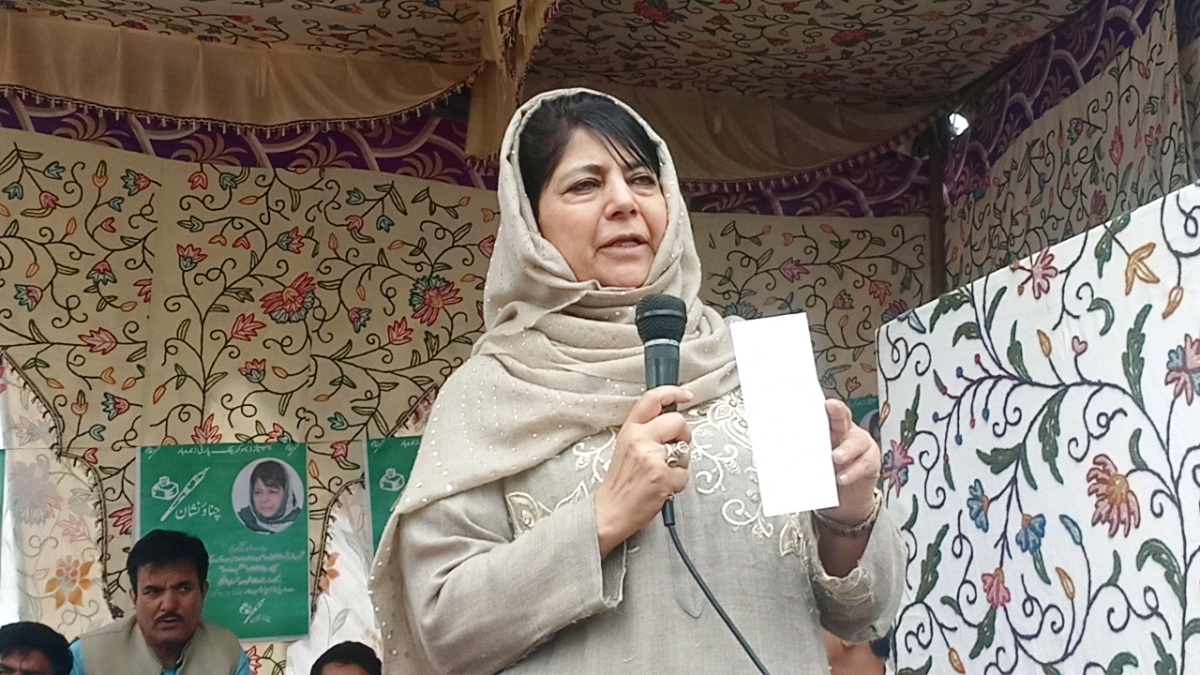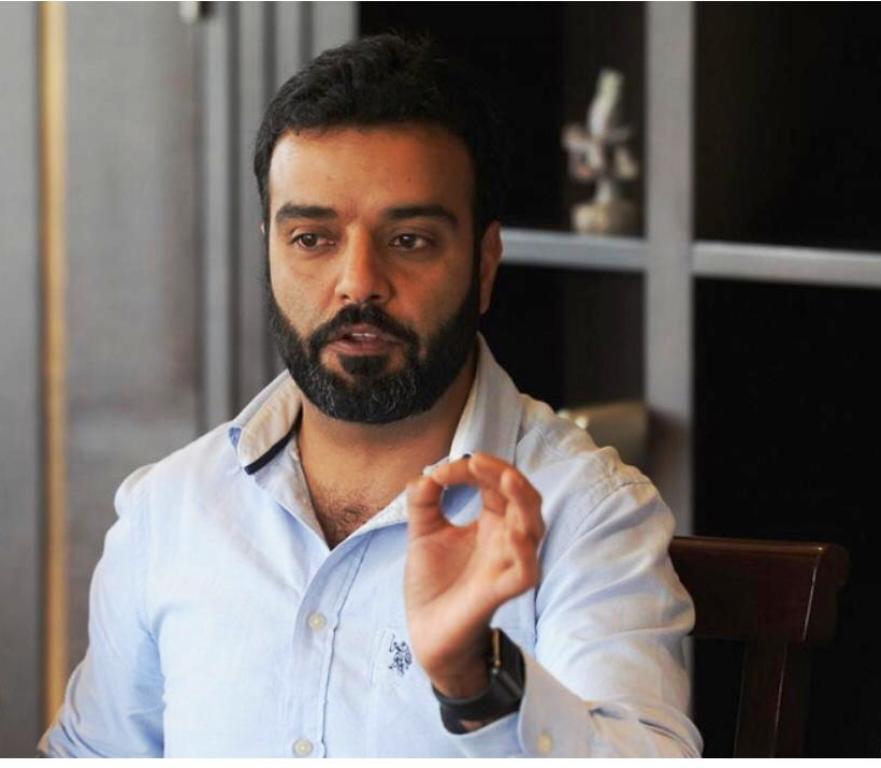KL NEWS NETWORK
SRINAGAR
Authorities Tuesday imposed curfew like restrictions in most parts of Srinagar even as the Valley observed complete shutdown on the third anniversary of Muhammad Afzal Guru.
Guru, who was hanged in a New Delhi jail on February 9, 2013, was buried in New Delhi’s Tihar jail after his conviction in parliament attack.
The shutdown call on his third anniversary was given by all the factions of Hurriyat Conference including Syed Ali Geelani, Mirwaiz Umar Farooq, chairperson Jammu and Kashmir Liberation Front (JKLF) Muhammad Yasin Malik.
All shops, businesses establishments, and private offices remained closed in Srinagar and other major towns of Kashmir.
Public transport also remained affected but private vehicles were seen plying on most of the roads. The strike also affected work in government offices, banks and post offices.
Authorities sealed off most parts of Srinagar including Maisuma, Safakadal, Maharaj Gunj, Nowhatta, Kral Khud and Khanyar.
Police and paramilitary were deployed on the roads to prevent protests. Police and paramilitary Central Reserve Police Force (CRPF) personnel fanned out in the old city areas of Srinagar and blocked all the roads with barricades and concertina wire to curtail pedestrian and vehicular movement in these areas.
Police and CRPF men were seen patrolling the deserted streets in Old Srinagar.
Armoured vehicles were also seen at some road junctions including Jehangir Chowk, Bemina crossing, Parimpora crossing and other road junctions to thwart any protests. Heavy deployment of police and CRPF was also made in areas falling under Maisuma police station.
In the uptown Srinagar, men in uniform were deployed at many subtle places. However, no untoward incident was reported from anywhere till the report was filed.
Though the situation was peaceful in the City throughout the day but minor clashes between police and protesters erupted at Kral Khud. Nonetheless, no injury was reported.
Similar reports of shutdown were also received from central, south and north Kashmir of the Valley.
According to the KNS, curfew like restriction was imposed in parts of Sopore to thwart any possible protests. “A peaceful protest was also held at Sopore– the native village of Afzal Guru– by his family members and other people residing in the area. They were demanding mortal remains of Afzal Guru,” locals informed.
Curfew like restrictions in parts of Srinagar and Sopore was imposed to maintain law and order. Police officials informed that the decision to impose restrictions was taken following the call given by separatist camp to organize protest marches on the third anniversary of Guru.
Separatists had called for a complete shutdown to protest the “judicial killing” of Guru and to demand his mortal remains.
Guru was secretly hanged and buried at New Delhi’s Tihar jail on this day in 2013 after Supreme Court called for his hanging “to satisfy collective conscience of nation” over the attack on the Parliament.
Activists have criticized the SC ruling, saying that Guru’s role couldn’t be established in the attack.
Authorities on Monday arrested Muhammad Yasin Malik along with his some of his party members from Abi Guzar area of Srinagar and later, they were remanded to seven-day judicial custody.
The separatist leaders including Peoples League vice-Chairperson, Muhammad Yaseen Atayee, Imtiyaz Hyder, Muslim League senior leader, Bashir Ahmad Bhat and several others have been taken under preventive custody on Monday night.
Meanwhile, Hurriyat patriarch Syed Ali Geelani condemned curbs on Guru’s anniversary.
Strongly condemning the imposition of restrictions by the government on the 3rd martyrdom anniversary of Mohammad Afzal Guru, house detention of Mohammad Ashraf Sehrai, Shabir Ahmad Shah, Nayeem Ahmad Khan, Ayaz Akbar and Mohammad Ashraf Laya, shifting of dozens of pro-freedom leaders including Mohammad Yasin Malik to central Jail Srinagar, detention of more than 50 Tehreek-e-Hurriyat activists including the pro-freedom leaders Firdous Ahmad Shah, Mohammad Yaseen Attayee, Syed Imtiyaz Hyder, Mohammad Amin Sofi, Bashir Ahmad Bhat, Mohammad Subhan Wani, Bilal Ahmad and Mehraj-ud-din in different police stations and police raids on the residences of Hurriyat leaders Mohammad Yousuf Naqash and Mehraj-ud-din Kalwal, Geelani said, “on the one hand, India is committing genocide of Kashmiris and on the other hand we are not allowed to mourn over the dead bodies of our loved ones. It is the worst kind of state terrorism which the Kashmiri nation is facing since last 68 years.”
“Jammu and Kashmir has been converted into a major jail and the people of this state feel suffocated in this situation. Geelani said that the policy of the Indian government with respect to Kashmir is increasing the political uncertainty and instability in the state,” he said.
Spokesperson Islamic Political Party Tuesday said that a heavy contingent of police raided the house of senior All Parties Hurriyat Conference Leader and Chairperson Islamic Political Party JK, Mohammad Yousuf Naqash, to arrest him but he was not at his home.
While castigating “this act of occupational troops”, the spokesperson stated, “India while suppressing human rights of Kashmiris is adopting Zionist path and policies in Kashmir and wants by killings, arrest divert and repress freedom struggle of Kashmiris.” “Current freedom struggle of Kashmiris is being oppressed by India via genocide, arrests, torture and other repressive tactics.”
Meanwhile paying rich tributes to the Muhammad Maqbool Bhat and Afzal Guru on their martyrdom anniversaries, Mohammad Yousuf Naqash said, “it was because of these sacrifices which had attracted international attention to the issue and generated an opinion that the resolution of Kashmir was essential for the lasting peace in South Asia, adding, rights organization should play their role in getting back the mortal remains of the two Kashmiri to their families and their people.”
Demanding the return of the mortal remains of both Bhat and Guru, who were buried inside Tihar Jail after hanging them, Naqash said, “denying the proper burial of the mortal remains to their families and Kashmiri people by the Indian state amounts to a grave violation of human rights and are against all democratic norms.”















